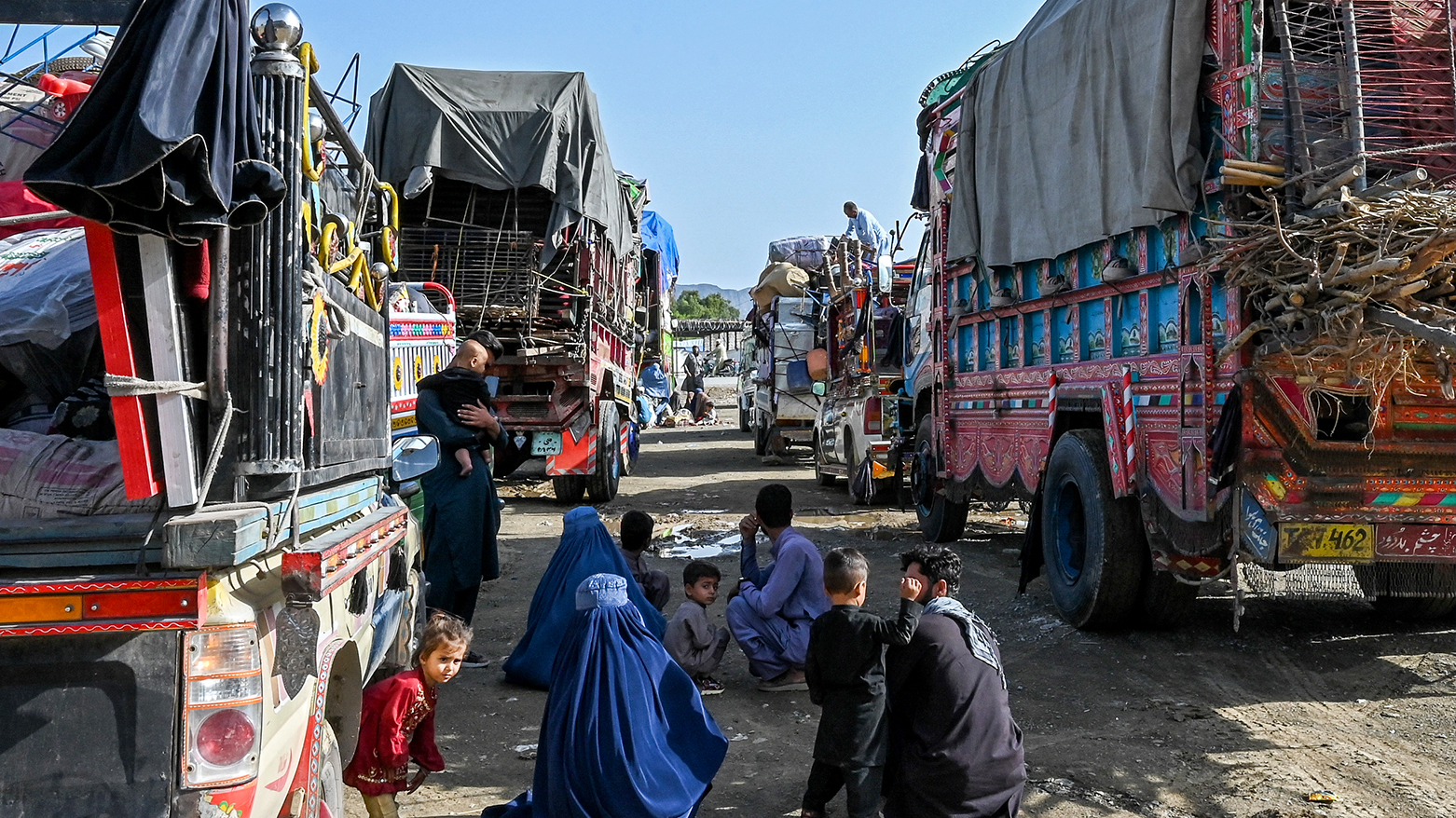Pakistan confirms expulsion of over 80,000 Afghans amid rights concerns
IOM said Tuesday that nearly 60,000 Afghans had been expelled in April alone, and warned of a looming humanitarian crisis.

By Ahora Qadi
ERBIL (Kurdistan 24) – Pakistan has confirmed the expulsion of more than 80,000 Afghan nationals since April 1 as part of its ongoing repatriation campaign targeting undocumented migrants, despite growing criticism from international rights organizations who warn the policy places vulnerable individuals at severe risk.
Speaking to reporters on Friday, Pakistan Interior Ministry adviser Talal Chaudhry reiterated that there would be no further extensions to the Illegal Foreigners Repatriation Plan, originally launched in late 2023. The plan targets over three million Afghans living in Pakistan, many of whom lack proper documentation.
“We have communicated clear instructions to all provinces: if anyone provides a shop, house, or space to an illegal foreigner, they will be held accountable under the law,” Chaudhry said in Islamabad, signaling the government’s uncompromising stance.
Those holding Afghan Citizen Cards or lacking legal papers were initially given until March 31 to leave, a deadline later extended to April 30. Pakistani officials have now confirmed that more than 80,000 individuals have been returned in that period.
Rising humanitarian needs at the border
The International Organization for Migration (IOM) said Tuesday that nearly 60,000 Afghans had been expelled in April alone, and warned of a looming humanitarian crisis. “With a new wave of large-scale returns now under way from Pakistan, needs on the ground are rising rapidly – both at the border and in areas of return that are struggling to absorb large numbers of returnees,” said Mihyung Park, the IOM’s Afghanistan chief.
Pakistan has established temporary holding centers in several cities to process and accommodate Afghans prior to repatriation, most of whom are being transported via the Torkham border crossing in Khyber Pakhtunkhwa province.
In addition, more than 1.3 million Afghans holding UNHCR-issued Proof of Registration cards have been instructed to relocate from the capital Islamabad and the adjacent city of Rawalpindi, compounding pressure on refugee communities already facing uncertainty and displacement.
Bilateral tensions and high-level visit
The mass deportations come amid rising diplomatic tensions between Islamabad and the Taliban-led government in Kabul, which has labelled the initiative as “forced deportation” and politically motivated.
Pakistan has frequently blamed Afghan refugees for a rise in criminal activity and security threats within its borders—accusations flatly rejected by Afghan authorities. Nonetheless, Pakistani officials continue to present the crackdown as a national security imperative, targeting only individuals residing in the country without legal status.
In an attempt to address the growing rift, Pakistan’s Foreign Minister Ishaq Dar is scheduled to visit Kabul on Saturday. According to a statement from Pakistan’s Foreign Office, Dar will lead a senior delegation to discuss “the entire gamut of the Pakistan-Afghan relationship,” with a focus on security, trade, connectivity, and people-to-people ties.
Rights groups condemn expulsions
Human rights advocates have condemned the policy, warning that mass expulsions place vulnerable populations—particularly women and children—at acute risk of insecurity and persecution upon return to Afghanistan. Despite these appeals, Islamabad appears determined to proceed with the campaign, citing sovereignty and domestic law as the foundation of its policy.
With no signs of a policy reversal, tens of thousands of Afghans continue to face displacement, uncertainty, and the prospect of being uprooted from communities they have lived in for years—if not decades.
